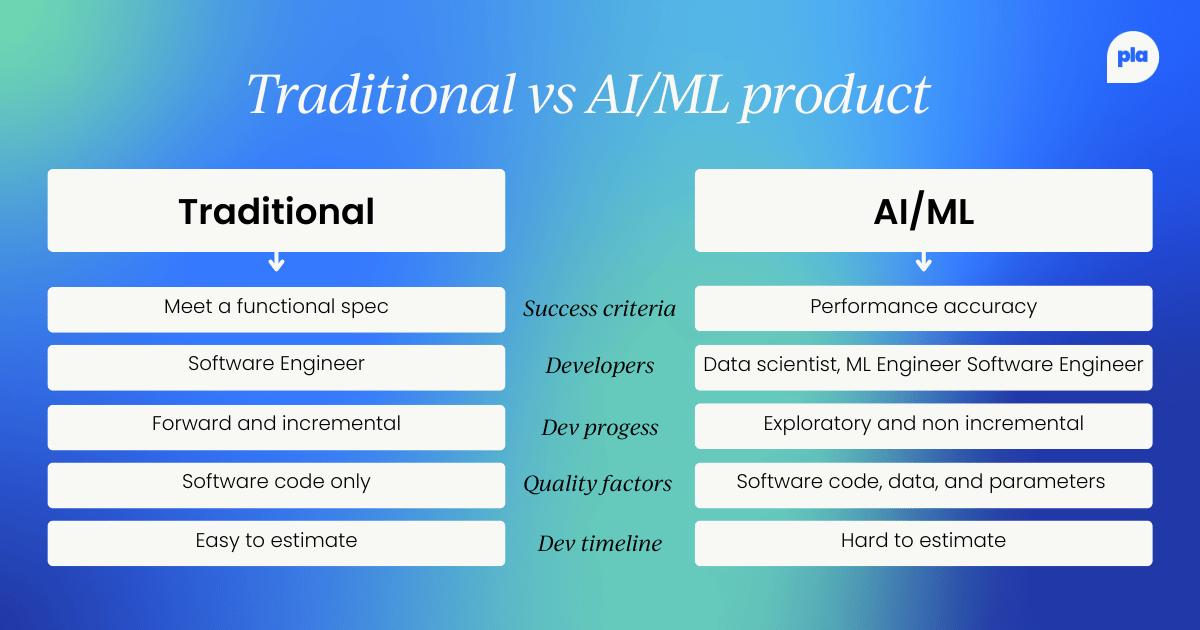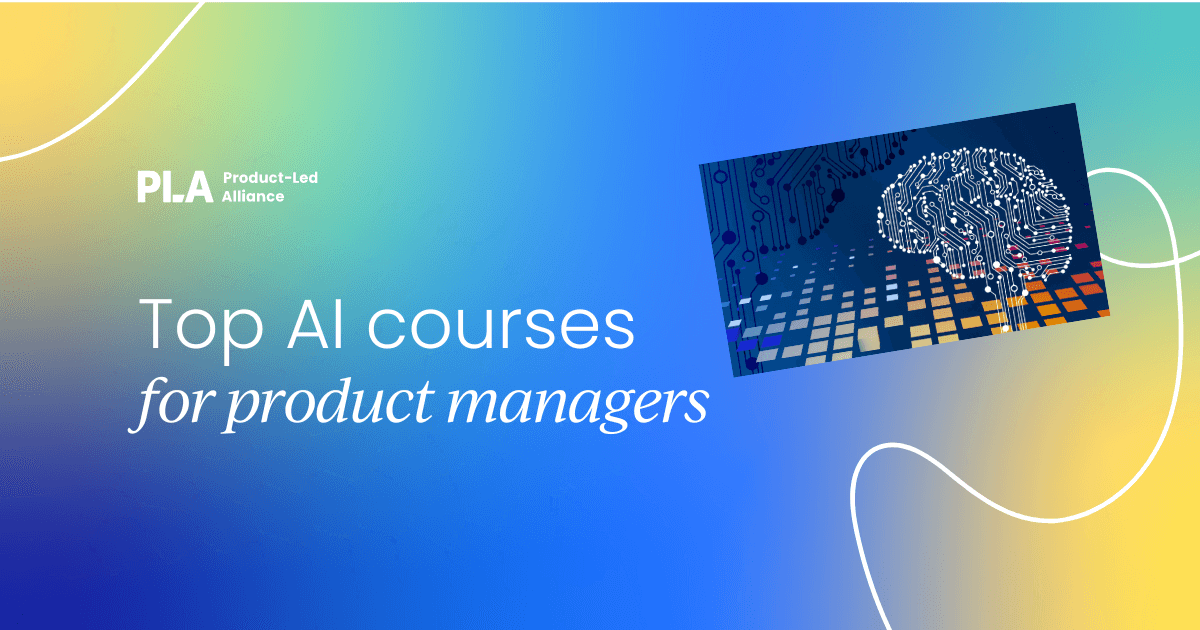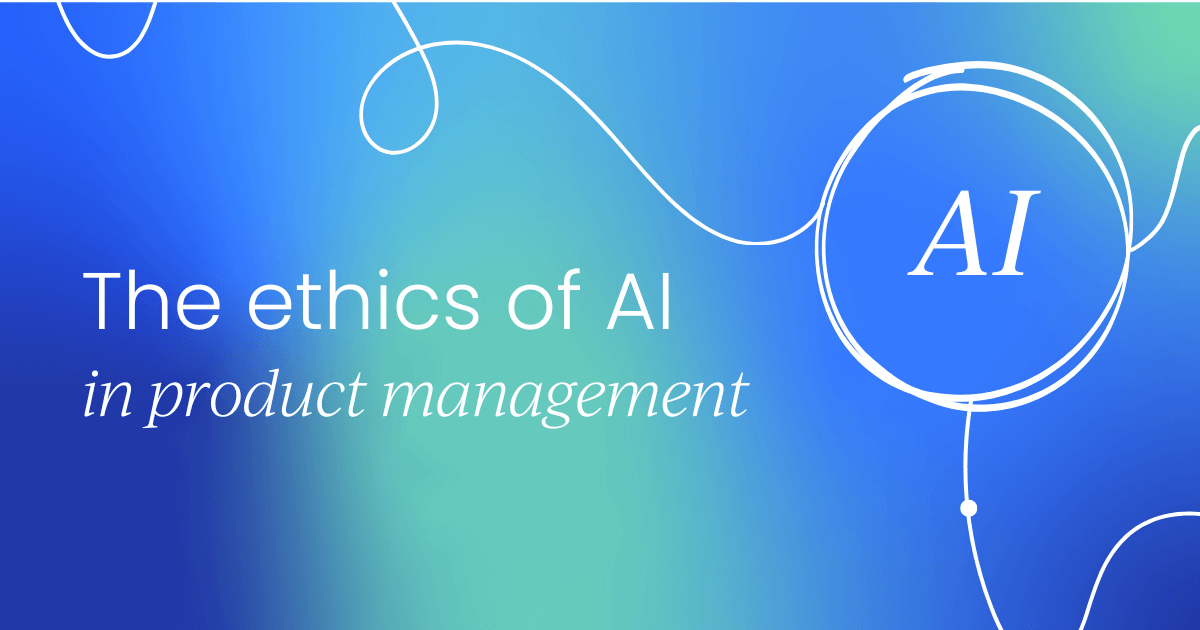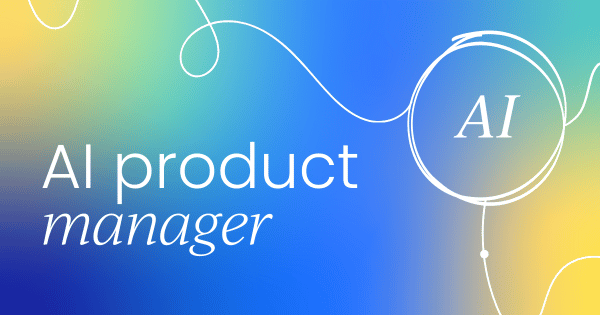What is an AI product manager?
AI product management is an emerging specialization in the product field. It involves understanding the potential of artificial intelligence (AI) and how to use its deep learning abilities to create products.
As more companies adopt AI, this role is becoming increasingly essential. So, instead of worrying about adopting AI, companies should focus on how they'll use it to stay ahead.
Successful AI product management comes down to finding the right data and figuring out how to use that data to create amazing products.
Ideal AI product manager candidate
Product management has shifted over the past few decades. The product manager (PM) role has become increasingly specialized as industries become more niche. With the development of AI, there has been a shift towards utilizing data, so an AI PM’s talents need to match.
The best skills you can have include:
- Technical know-how
- UX design
- A keen eye for data analysis and experimentation
- A deep understanding of user research
- Familiarity with product development methodologies
- Business modeling skills
The best AI PMs are the ones who can identify problems and find the right solutions. They're the go-getters who stay ahead of the game to incorporate AI technology into their businesses and products.
With the right data in their hands, a good PM will pull insights from customer behavior to make the best product for their consumer base. Think optimization and streamlining for both your business roadmap and user experience.
Roles and responsibilities of an AI product manager
What are the key responsibilities you need to succeed? We’ve highlighted the top tasks involved in the AI product manager role:
- Conduct market research to identify opportunities and understand customer pain points.
- Define product vision, roadmap, and feature prioritization.
- Collaborate with stakeholders to gather functional and non-functional requirements for the AI product.
- Overseeing the acquisition, processing, and quality assurance of data used to train and improve AI models.
- Work with data scientists to select appropriate algorithms and train AI models.
- Working with designers to create intuitive and user-friendly interfaces for AI-powered products.
- Define metrics to evaluate the performance and effectiveness of AI products.

Traditional vs AI product manager
So… what’s the difference between a traditional product manager and an AI product manager?
Being an AI product manager is like being a traditional PM but with some extra twists and turns. You still need a strong handle on market research to generate and evaluate ideas and develop user personas.
Plus, you're the one setting the product vision and strategy, prioritizing tasks, and mapping out the roadmap.
But AI product managers have a few special cards up their sleeves. They dive deep into building and managing AI models, collaborating closely with data scientists and engineers to create and enhance AI models.
Chirag Dayani, Senior Product Manager at Microsoft explains his perspective:
“We have different definitions of a PM. Some people say it's the CEO of a product, and some people say it's something completely different.
“PMs who work in a high capacity also work with cross-functional teams, from sales, marketing, UX designers, software engineers, legal, customer support, and whatnot. And they have to get buy-in from different teams and get that information aligned in one place.
“But if you add more complexity on top of that, when you have more data and more research going on, you work with more people, and you work with AI, machine learning (ML), and data engineers, that's when the magic starts.
“Below is a comparison of how traditional product development is different from machine learning product development.

“You’ll see how the success criteria may be different because, in AI or ML products, we're looking at more of the performance metrics and more at accuracy, precision, and recall. That's what the metrics are all about. Are you providing the right coverage? Or are you getting accurate information?
“With a regular product, you're looking more closely at the usage and adoption frameworks.”

Why do companies need AI product managers?
As the use of AI in companies increases, there’s a demand for more and more products to incorporate AI into their functionality. To succeed, organizations must assemble skilled teams to drive these initiatives.
That’s where AI product managers come in. This role specializes in AI experimentation, complex data analysis, and building AI products.
In 2021 alone, the demand for AI product managers nearly doubled, signaling the importance orgs are placing on hiring professionals capable of steering the development of the next generation of AI-enabled solutions.
How to become an AI product manager?
With an increasing demand for AI product managers, here are some ways product managers can specialize in AI and stand out in the job market.
1. Embrace AI tools
Start by exploring use cases for AI within your current workflows. There are plenty of AI tools available that can improve your decision-making and speed up your processes.
AI can also assist you in communicating with other teams and stakeholders by editing your messaging for clarity and influence.
In essence, AI tools are not merely tools; they are enablers of a more streamlined, data-driven, and innovative approach to product management.
Understanding these tools can ease you into the transition of specializing in AI product management. And becoming an active AI user helps you to consider the UX of AI tools, before designing one yourself.
2. Get hands-on experience
The best way to develop your AI skills is to gain hands-on experience. There are two ways to do this:
- Ask to work on AI projects within your organization
- Work on side projects and practical coursework
When searching for opportunities within your company, look for AI projects where you can work under a project manager. Learn to take initiative and put into practice what you’ve learned.
See firsthand what makes a project successful and what causes it to fail or lag. Now is your chance to learn how to reduce risk and use practical skills. Ask your managers questions and absorb as much information as you can to apply to future AI projects.
Once you’ve wrapped up your project, note down what you learned and the skills you gained — this will help you in future job searches or performance conversations.
When working on side projects, ensure you seek feedback from peers to understand how to improve and note down what you learned. Leverage academic projects, engage in hackathons, and utilize cloud platforms to make and test AI functions.
Taking on extra projects is a great way to build a portfolio and showcase your experience.
Looking for more advice? In our State of AI Product Management report, we asked PMs to identify the best ways to get hands-on experience with AI and its applications.
Here's what they said:
- Working on AI product development projects (38%)
- Join AI communities and contribute to open-source projects (26%)
- Collaborate with a cross-functional team on AI projects in your current role (14%)
- Take AI-related courses and certifications (10%)
- Volunteering to lead AI-related initiatives within your company (8%)
- Build and launch your own AI-powered product (4%)

3. Build your network
As the saying goes, “sometimes it’s who you know, not what you know.”
With this in mind, try to build your professional network and make connections with AI product managers.
LinkedIn is a great place to start — there’s no faster way than to connect and network (especially if you share your journey online). Post and discuss insights and knowledge, share your opinion, and become a trusted voice in the virtual AI world.
Conferences and workshops are also excellent ways to network, as you’ll make face-to-face connections with fellow PMs. You never know, you might just meet your next employer!
Remember to keep a friendly face and an open mind as you make long-term connections with like-minded AI enthusiasts.
4. Refine your soft skills
While your technical skills are important, your soft skills are also key to securing your transition to AI product management. The role involves project management, collaboration, and motivating your team, so it’s key to develop your skills.
Soft skills will level up your progression, here are some to develop:
- Creativity
- Critical thinking
- Communication
- Teamwork
- Emotional intelligence
- Leadership
- Empathy
In particular, communication and collaboration are crucial for AI product managers as you'll be working with various individuals, from stakeholders to developers, marketers, execs, and designers. So it’s important you know how to manage a lot of different personalities.
Being an AI product manager also requires leadership skills where you can communicate, negotiate, and settle differences should they arise.
Empathy also goes a long way, not just in terms of your customers but with your employees too. Understand people's pain points to create a well-loved product and a harmonious working environment.
5. Prepare for diverse interview styles
AI interviews don't adhere to a one-size-fits-all standard.
Be prepared for hypothetical questions, technical interviews with data scientists, product management discussions, and HR interviews laden with AI buzzwords.
There are a ton of practice interview questions available online, so make sure you practice your responses and study the best ways to respond to tricky technical questions.

6. Stay up-to-date with AI trends
Technology moves fast, and you need to stay ahead of the curve if you want to remain relevant.
Stay on top of industry trends by reading industry news, attending conferences, continuously building your networks, and engaging with thought leaders.
Not only will this keep you current, but you’ll be able to make better decisions in the fast-changing world of AI.
AI products are never the same, so you need to understand the latest technology and trends to create positive change for your product and organization.
Consider signing up to some industry newsletters to get updates straight to your inbox.
7. Prioritize continuous learning
Dive into the discourse by reading articles and books, and taking online courses to develop your knowledge.
As we mentioned, the AI landscape is ever-evolving, demanding a commitment to continuous learning. Diplomas and certifications from reputable sources like Udacity or MIT validate your knowledge and provide a strong foundation to break into the product management job market.
To become certified, you've got to mix your love for AI with some structured learning. Start with a solid educational background in computer science, machine learning, or a related field.
Or you can invest in an AI product manager course that suits your needs.
These certification programs cover the key areas of AI product management like: AI strategy, data analytics, UX design, and project management, all within the context of AI-driven products.
Plus, getting certified shows you’re serious about transitioning and hooks you up with a network of AI-savvy folks.

Skills for AI product managers
In case you’re still unsure what skills an AI product manager needs to succeed in the role, here’s a breakdown of the key skills every AI PM needs.
Understand AI and machine learning
It may seem obvious, but it’s worth highlighting the importance of having a solid understanding of AI and ML technology.
You’ll need to understand the technical aspects of how these technologies work and their potential for improving your company’s product. It’s your job to strategically use AI to enhance features and improve user experience.
Engaging in discussions about model trade-offs, experimentation approaches, infrastructure choices, and technology stacks is not just a choice but a necessity.
Continuous upskilling through online courses, staying abreast of industry developments, and gaining hands-on project-based experience are non-negotiable components of this technical mastery.

Adaptability
AI product managers must navigate a wide range of activities and priorities.
They might find themselves involved in day-to-day team operations, from planning and iterating to user research and sprint retrospectives. This versatility is essential, as communication with both executives and the core team is paramount.
“In some situations, your efforts might not even work out. So do you have some fallback plan? Because this product isn’t going to work at all.
“Do I have a fallback plan where I can get it done using regular software development work and maybe have some value versus no value? Those kinds of skills are really necessary as an AI PM.”
– Chirag Dayani, Senior Product Manager at Microsoft
Defining and solving problems
You’ll be faced with many problems as an AI product manager, so you’ll need to be able to accurately define problems and think of creative solutions. As well as having the confidence to make these decisions, you’ll also need to back them up and justify them to leadership.
Ensuring your team is solving the right problems is a huge part of being an AI PM as it’s easy to get lost focusing on the wrong challenges.
“When we’re doing this kind of data-driven solution, we always get lost and think about if it’s the right solution. But we're not looking at whether it’s the right problem that we’re solving.”
– Chirag Dayani, Senior Product Manager at Microsoft

Customer centricity
Being customer-centric is also a critical part of being a product manager, and AI product management is no exception.
You have to understand your users, their needs, their frustrations, and how they use your product. When solving problems you have to keep this in mind, as your AI features are useless if your customers don’t use them.
“We need to be very customer-centric. We need to have the ability to read the data, understand the data, and see if that data makes sense. Are we going to make references out of that data or not?”
– Chirag Dayani, Senior Product Manager at Microsoft
Data skills
Finally, data skills are essential for joining the ranks of AI product managers. The role requires you to analyze tons of data points from user touchpoints to adoption rates and beyond.
You need to be able to use key data to inform your decision-making and overall product strategy, all while tracking your progress against KPIs and business goals.
On top of that, you’ll need to use data to understand the AI model's training model and reduce bias in your program.
“Whereas before, we maybe had to worry about customer data creating a bad circumstance for our products, we're now using data before customers get involved at all in some cases.
“So, creating and curating the right type of data is very, very important in this type of role.
“All of the bias, fairness, and other types of responsible AI issues come out through data most of the time. There's no such thing as a model architecture that’ll reduce bias.
“There are only data sets and the way that you end up training them, that creates a fair or balanced model in a way that you feel is appropriate.
“The next thing is that finding the data is a really, really big issue.
“A lot of the time, you may not have enough of it, and if that's the case, you then actually have to start creating it. And there are a lot of issues that start to come up around synthetic data and the way that we end up creating and curating that type of information.
– Chris Butler, Staff Product Operations Manager at GitHub
AI product manager career path
AI product managers have a wide array of job opportunities in the tech industry.
They can find roles such as Product Manager for AI and Machine Learning, Senior AI Product Manager, or Associate AI Product Manager.
These positions involve leading the development of AI-driven products and services, collaborating with cross-functional teams, and driving the end-to-end product development process from discovery to delivery.
AI product managers may explore roles like Product Owner for Machine Learning and AI, where they contribute to shaping innovative solutions leveraging artificial intelligence.
With so many opportunities available, AI product managers can thrive in various companies ranging from startups to established tech giants, contributing their expertise in product strategy, innovation, and AI technologies to drive business success.

What’s an AI product manager’s salary?
AI product manager salaries can vary based on factors like location, experience, and the company itself.
In the United Kingdom, the average annual salary for an AI product manager is £135,915.
Salaries for senior AI product managers with advanced skills can be even higher, with averages of around $226,500 annually in the United States.
If you're considering a career as an AI product manager, the potential for a solid paycheck is definitely there, especially as demand for expertise in artificial intelligence continues to grow.
Looking for more AI insights?
Our ebook will equip you with the tools and knowledge to harness AI to your advantage, whether you're a seasoned pro or just dipping your toes into the PM pond.
Download today. 👇



 Follow us on LinkedIn
Follow us on LinkedIn











